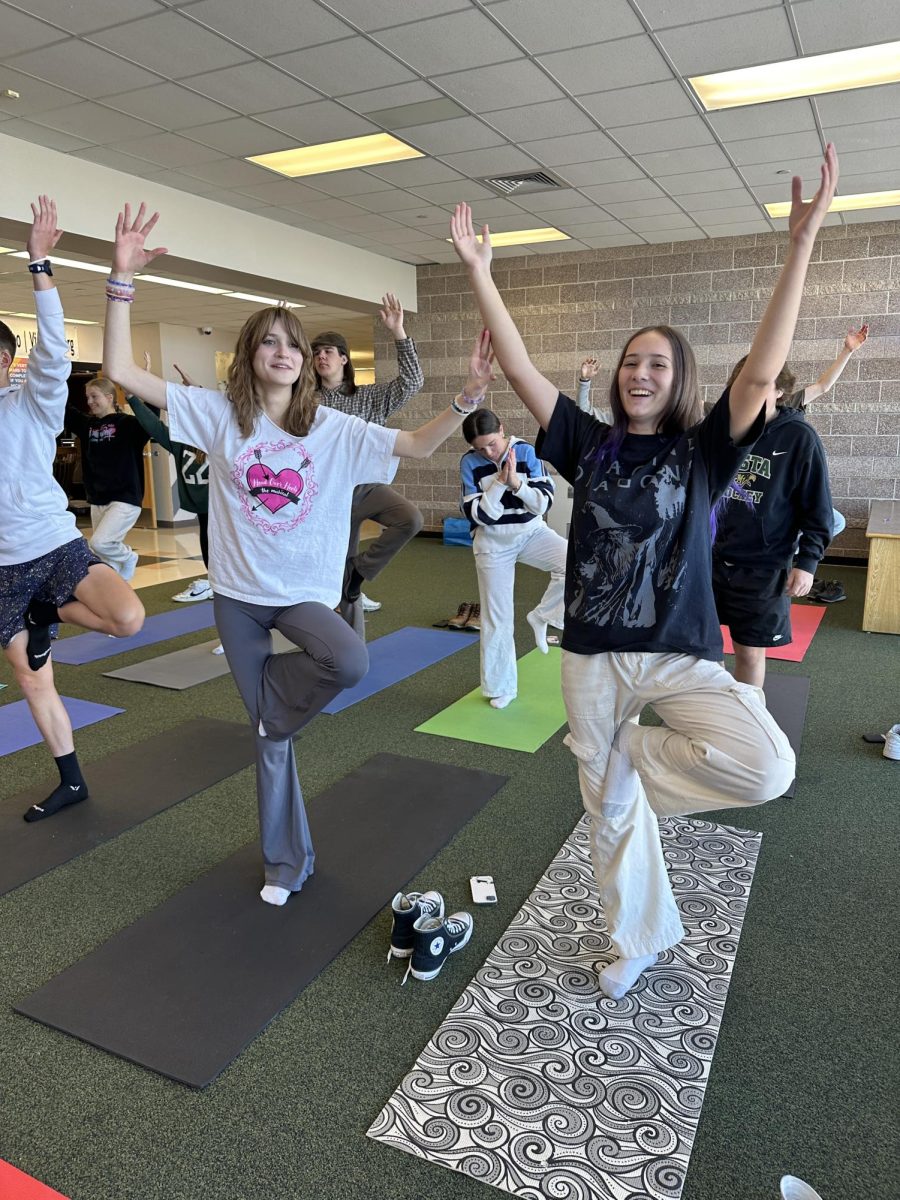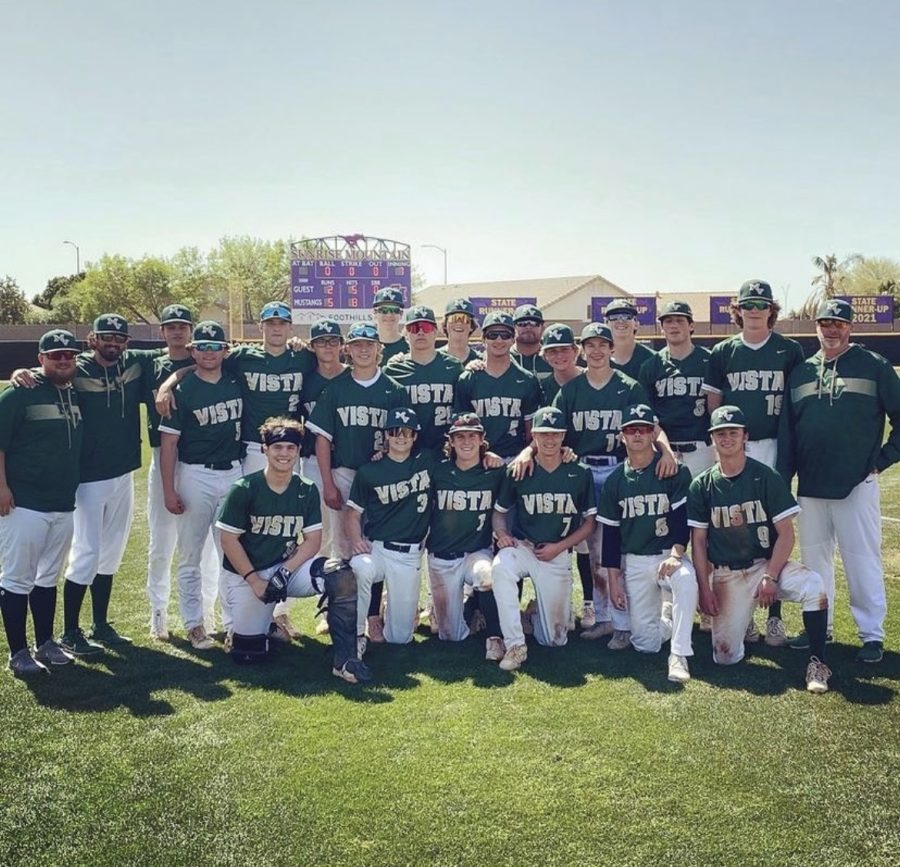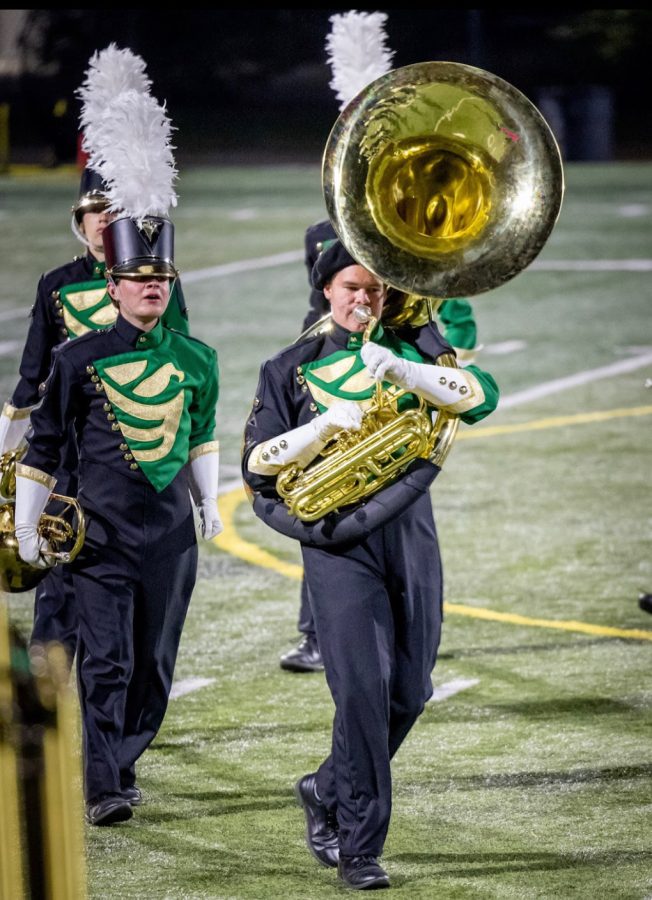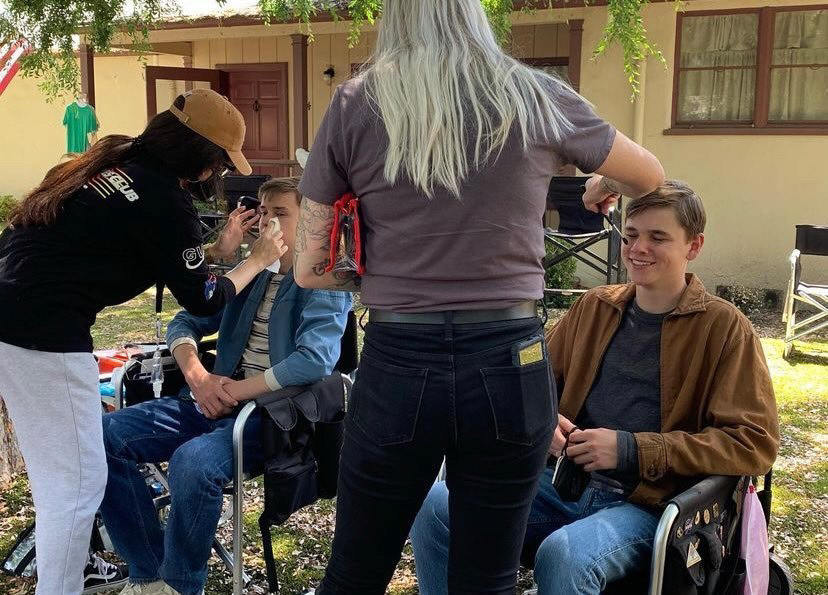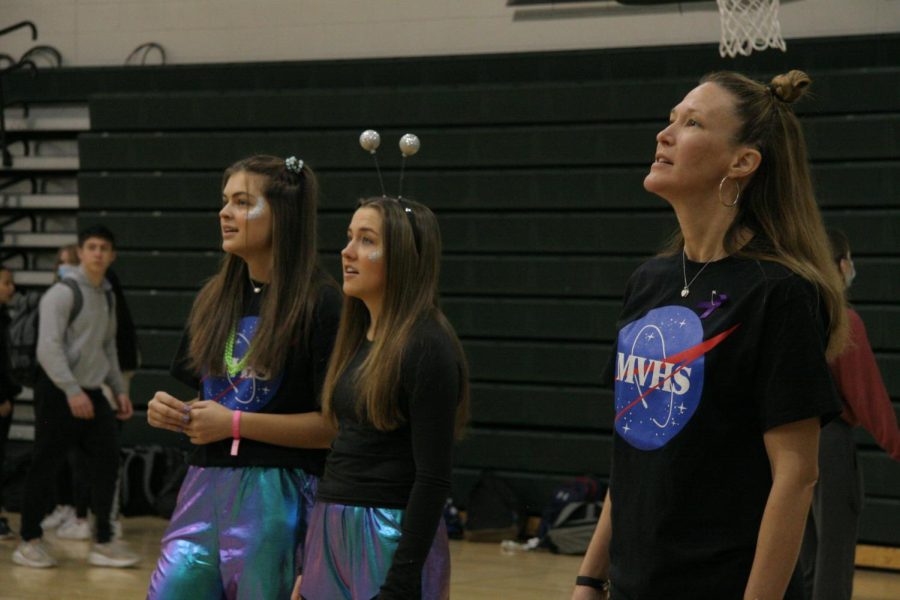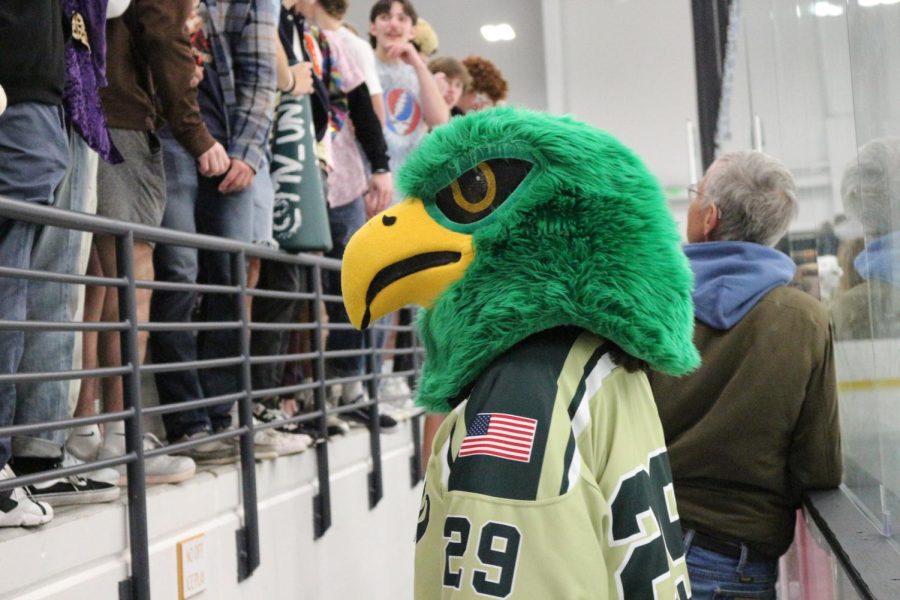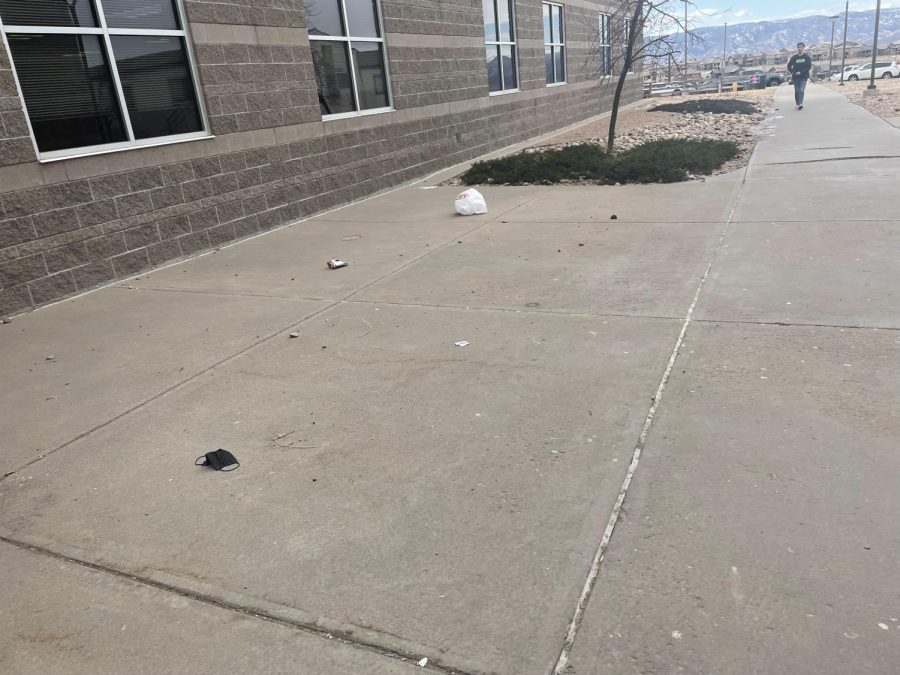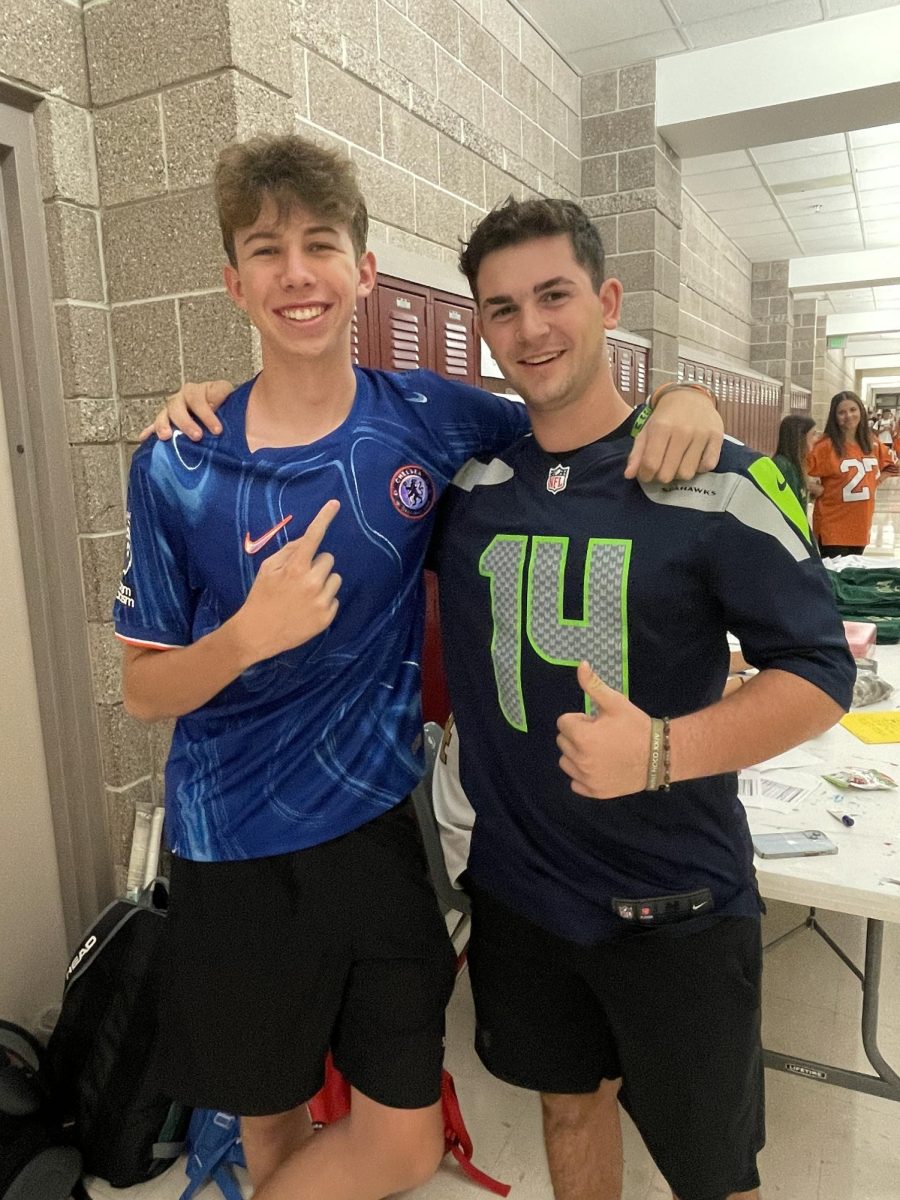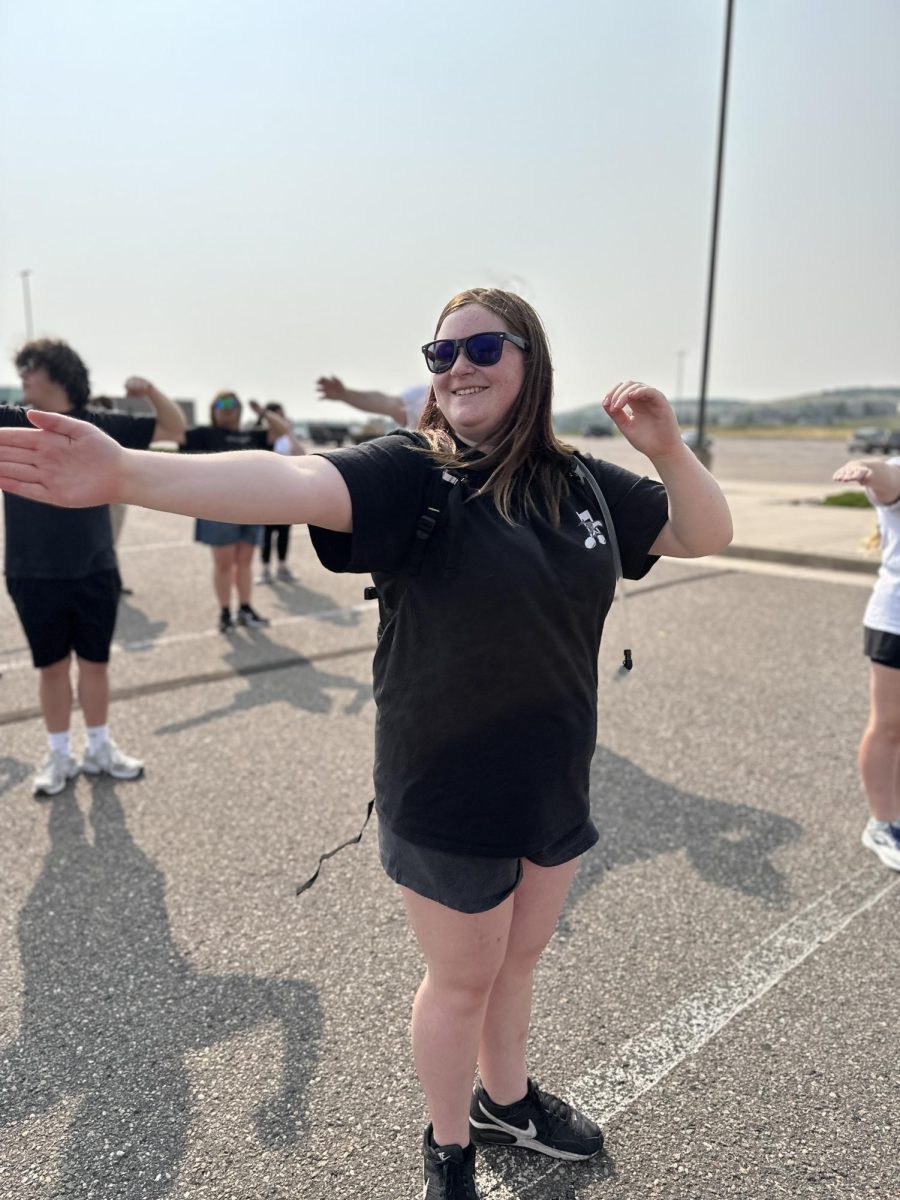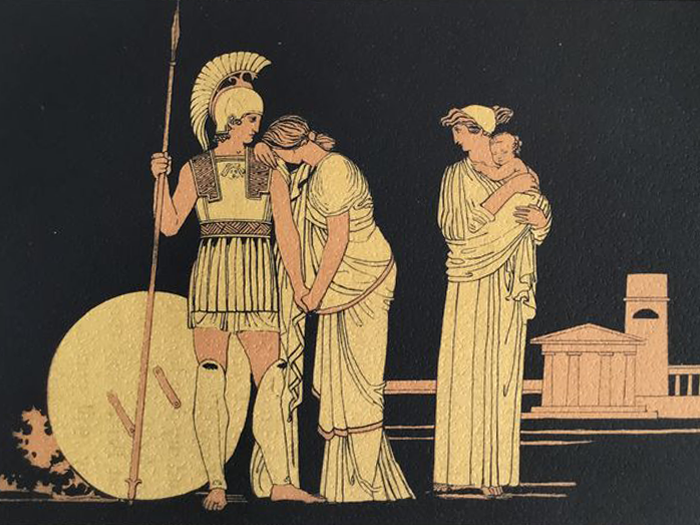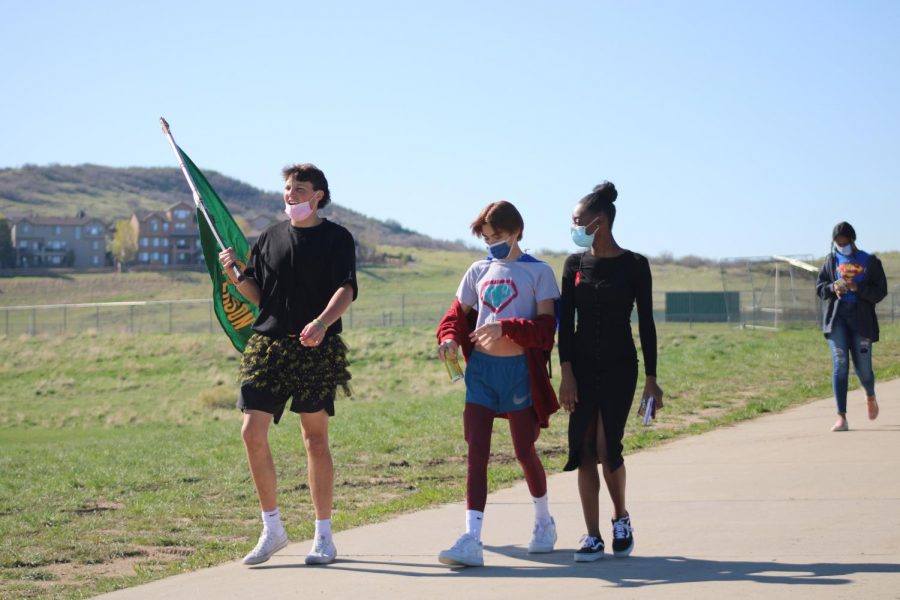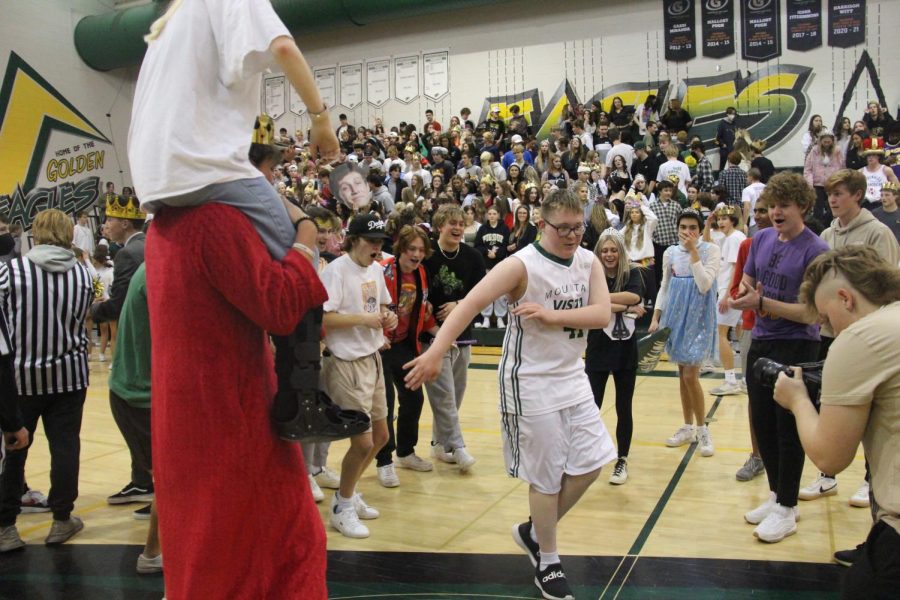 KATIE PICKRELL//TARA O’GORMAN
KATIE PICKRELL//TARA O’GORMAN
Not everyone has the pride or courage to stand over 500 people and speak about an experience of a life time. Last Wednesday, February 19, Jack Adler, a holocaust survivor and the profound author of “Y: A Holocaust Narrative,” spoke to Mountain Vista’s sophomore class about his childhood experiences in the concentration camp Auschwitz.
“I speak to you as a child survivor,” Adler opened. Adler had endured his own personal hell from ages 10 to 16 in the time of World War II.
He went on to explain the backdrop of his life. His town in Poland consisted of 42 thousand people-9000 of whom were Jewish. Adler’s immediate family consisted of six people and his extended family contained 83.
When the Nazis had first arrived, people greeted them with flowers and happiness, they had no idea what the Nazis would do to them next. Adler explained that not even four hours later, signs were posted prohibiting the Jewish people from attending public schools or worshipping in synagogues.
One of Adler’s most profound memories is Jews being “chased like animals with whips and dogs” by the Nazis. They were taken into town center and “whipped and dehumanized.”
Adler says that he was close to all of his family, but his mother was “number one.” He lost her and his brother in the ghetto before even setting foot in one of Nazi Germany’s excruciating concentration camps. Before they were eventually shipped to different camps, they were separated into the “young, the sick and the old” and “those who were useful for slave labor.” This is where Adler was first separated from his little sister. While sharing his experience, he got choked up. It was a very emotional time.
In the same night, Adler witnessed as “babies were ripped from their crying mothers” and “thrown into the air for target practice. ” “The soldier would then go home and go see his own children, go to church and pray, then come back and do the same evil things over again,” Adler said.
When the Jewish people were sent to work, they were ultimately helping to supply Germany with military aide. If they were to try to escape they would be killed right on the spot. Adler worked at a construction site building underground hangers for planes belonging to the German army.
“Selection was daily,” Adler said. Men were sent to the left and women to the right. Adler said they were told “when you march, look strong-that is if you want to live.”
Adler had multiple encounters on the brink of death. He recalls the closest he had ever been to the end of his life was while on the death march. Adler explained that “if you were unable to march, you were shot,” adding, “I forced myself to go on, even though I was very weak; one more day, I would not make it.”
Once again, the old, the sick and the young were killed. This time, they were loaded into “showers”, only instead of flowing water, they were filled with poisonous gasses. Their dead bodies were then thrown into the crematoria where the sky would fill with red smoke and stench with dead skin.
When all was said and done, Adler was the sole survivor of his family; he was one of five left of the 83 extended members. Adler’s persistence is what helped him to survive. He stated that during the Holocaust, “I said to myself every night, I must go on to see my loved ones again.”
“I survived in order to be the voices for the men, women and children that unfortunately had not made it.” Adler said.
Adler was sent to a foster home after the war. “I would not allow to be adopted because by doing so I would have to give up the only thing that I had left of my family- my family name,” Adler told MVHS staff members. He later joined the U.S. Army to fight for the country that had saved him. He was stationed in Chicago, Illinois. Currently, he is happily married and has two children. Adler refers to them as his “miracle family.”
In terms of his religion, Adler has concluded that “God created man, but man created evil.” Still today, he has kept his faith.
What is truly amazing about Adler, as a person, is his profound look on life. Adler shared his beliefs when he said, “We all belong to one race, the human race. We should have mutual respect for one another ” Adler added, “we don’t have to love everyone, I know I don’t, we don’t even have to like everyone.”





